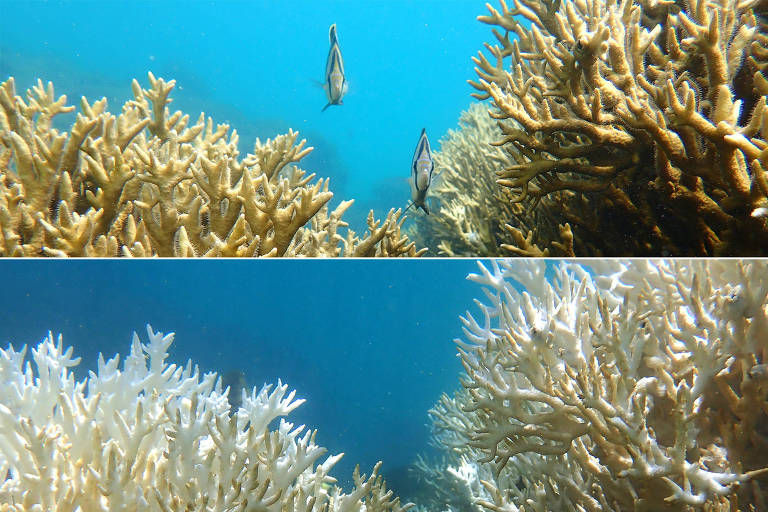After months of extreme heat warming the oceans, researchers have detected damage to coral reefs along the Brazilian coast.
In the southern coasts of Pernambuco and northern Alagoas, mass bleaching was observed, while in southern Bahia only a small portion of the colonies has been affected so far.
The phenomenon, which can lead to the death of coral reefs, occurs when the oceans experience several weeks of above-average temperatures. Bleaching is one of the consequences of climate change caused by human activities, as most of the excess heat associated with global warming is stored in the ocean.
In the Environmental Protection Area Costa dos Corais (APACC), region between the municipalities of Tamandaré (PE) and Maceió (AL), several colonies were affected, according to Beatrice Ferreira, a professor at UFPE (Federal University of Pernambuco).
She explains that mass bleaching is defined when about 50% of the species or colonies in a large area are affected by thermal stress.
